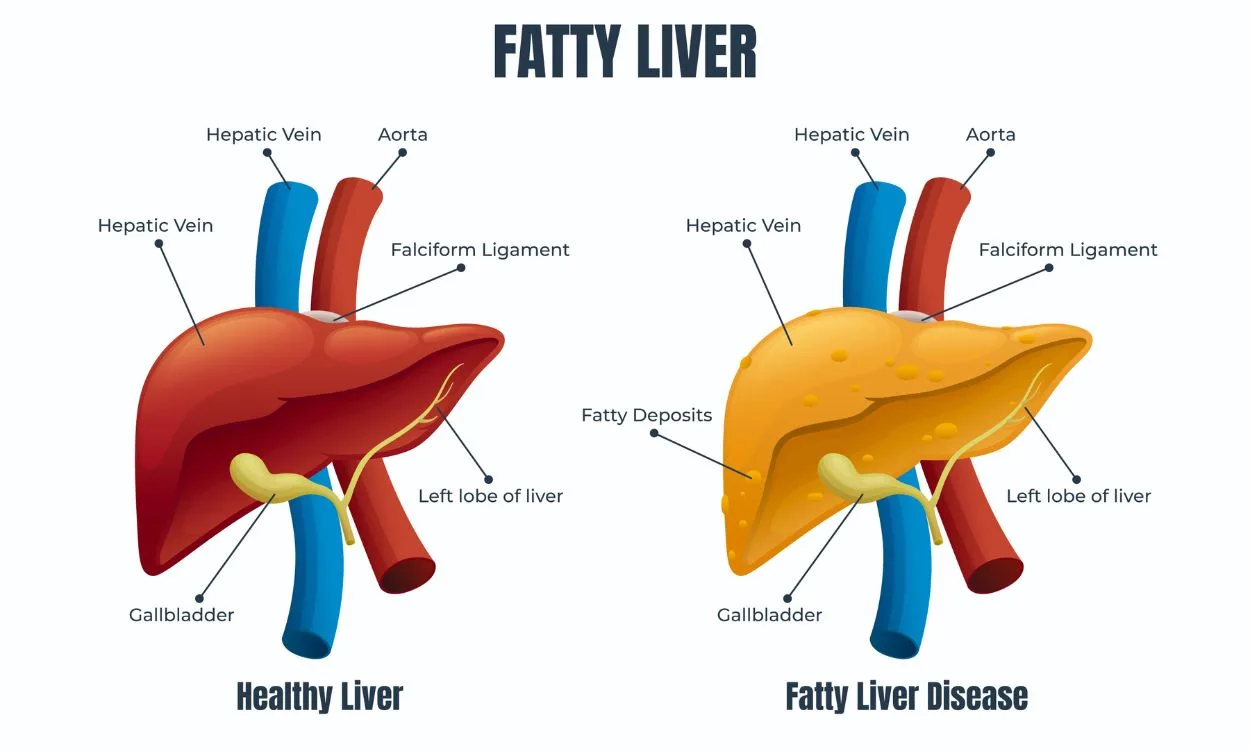What are the Risk Factors for Fatty Liver?
Fatty liver, also known as hepatic steatosis, is a condition characterized by the accumulation of fat in the liver. It is becoming increasingly common, especially in India, due to various factors such as lifestyle changes and dietary habits. In this article, we will discuss the risk factors associated with fatty liver and how it can be prevented or managed effectively.
1. Obesity and Overweight
One of the primary risk factors for fatty liver is obesity or being overweight. Excess body weight, particularly around the abdomen, increases the likelihood of fat accumulation in the liver. This is because the liver plays a crucial role in regulating fat metabolism, and when there is an excess of fat in the body, it can accumulate in the liver as well.
2. Poor Diet
Consuming a diet high in processed foods, sugar, and unhealthy fats can contribute to the development of fatty liver. Diets rich in refined carbohydrates and saturated fats can lead to increased levels of triglycerides in the blood, which can promote fat buildup in the liver.
3. Type 2 Diabetes
People with type 2 diabetes are at a higher risk of developing fatty liver. Insulin resistance, a hallmark of type 2 diabetes, can interfere with the liver’s ability to break down fats efficiently, leading to fat accumulation.
4. Metabolic Syndrome
Metabolic syndrome is a cluster of conditions that occur together, including obesity, high blood pressure, high blood sugar levels, and abnormal cholesterol levels. These conditions often coexist and increase the risk of developing fatty liver.
5. Alcohol Consumption
Excessive alcohol consumption is a significant risk factor for fatty liver disease. Alcohol affects liver function and can cause inflammation and fat accumulation in the liver. It is important to note that even moderate alcohol intake can contribute to the development of fatty liver in individuals who are susceptible.
6. Rapid Weight Loss
Losing weight too quickly, especially through crash diets or rapid weight-loss programs, can increase the risk of developing fatty liver. When the body rapidly breaks down fat stores, the liver may not be able to process the excess fat effectively, leading to its accumulation.
7. Sedentary Lifestyle
Leading a sedentary lifestyle with minimal physical activity can contribute to the development of fatty liver. Regular exercise helps improve insulin sensitivity, promotes fat burning, and reduces the risk of fat accumulation in the liver.
8. Certain Medications
Some medications, such as corticosteroids, tamoxifen, and antiretroviral drugs used for HIV treatment, can increase the risk of fatty liver. It is important to discuss potential side effects of medications with your healthcare provider and explore alternative options if necessary.
9. Age and Hormonal Changes
Fatty liver is more common in middle-aged and older individuals. Hormonal changes that occur with age, such as menopause in women, can contribute to the development of fatty liver.
10. Genetics
Certain genetic factors can predispose individuals to fatty liver disease. If you have a family history of fatty liver or related conditions, you may have an increased risk.
Conclusion
Fatty liver is a serious condition that can have long-term effects on liver health if not properly managed. Understanding the risk factors associated with fatty liver is crucial for prevention and early intervention. Maintaining a healthy weight, following a balanced diet, engaging in regular physical activity, and avoiding excessive alcohol consumption are essential for reducing the risk of fatty liver. If you are at risk or have been diagnosed with fatty liver, it is important to work closely with your healthcare provider to develop a personalized treatment plan.
Now that you have a better understanding of the risk factors for fatty liver, it’s time to take control of your health. Download the Fitpaa app today to get personalized guidance, expert support, and tools to help you achieve your health and fitness goals. Fitpaa’s comprehensive approach, backed by the latest research, can help you optimize your metabolism, manage your weight, and improve your overall liver health. Don’t wait any longer – start your journey towards a healthier liver and a healthier life with Fitpaa!









